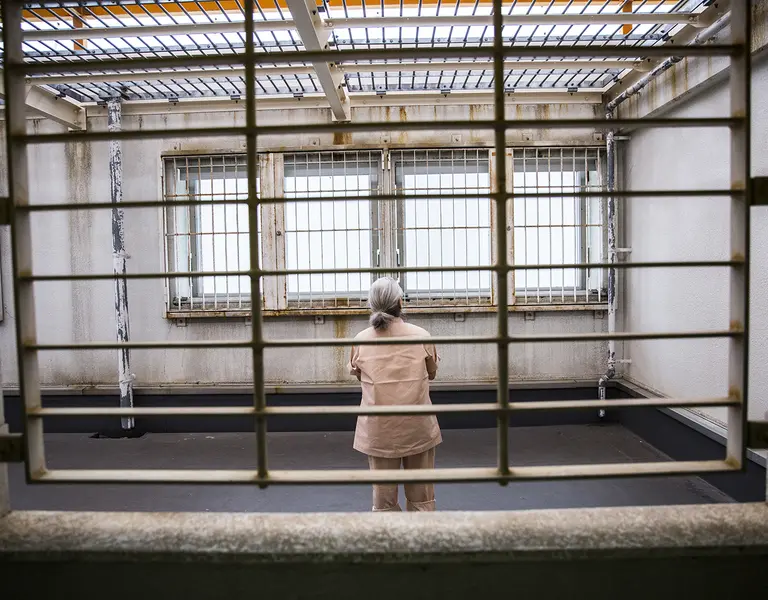Inside Japan’s largest women’s prison, an increasing number of elderly inmates are seeking refuge behind bars, driven not by criminal intent but by the country’s pervasive loneliness and aging population crisis.
In a country where the elderly population is growing rapidly, Japan’s Tochigi Women’s Prison stands as a reflection of a society struggling with isolation and financial hardship among its aging citizens. The prison, which resembles more of a nursing home than a correctional facility, houses a significant number of elderly women, some of whom prefer the prison’s routine and security over the harsh realities of life outside.
The sight of frail hands and bent backs is common as elderly inmates shuffle through the corridors, supported by walkers, while others rely on prison staff for basic needs like bathing, eating, and taking medication. Many, like Akiyo, an 81-year-old inmate, serve time for crimes committed out of desperation, such as shoplifting food.
For these women, the prison offers not only basic sustenance but also companionship, a lifeline in a world where they feel abandoned. Akiyo, who has spent time both inside and outside prison, shared that her decision to steal was driven by poverty and a lack of family support.
With a meager pension and no place to belong, she found herself once again incarcerated. “Perhaps this life is the most stable for me,” she said, reflecting on the lack of emotional and financial security outside. The phenomenon of elderly inmates is not isolated to Tochigi.
Nationwide, the number of prisoners aged 65 or older has nearly quadrupled in the past two decades. Many elderly women, like 51-year-old Yoko, find themselves imprisoned repeatedly due to poverty, a lack of social safety nets, and the prospect of the prison’s routine care.
Yoko has served multiple sentences, but each time she returns, the prison population grows older, prompting some to intentionally commit crimes for the stability and care that prison offers. While Japan has acknowledged the issue and made strides to improve community support for elderly citizens, it remains unclear whether these efforts will be enough.
The country faces one of the world’s longest life expectancies coupled with a low birthrate, a combination that has created a demographic crisis exacerbating loneliness and poverty. Inside the prison, the daily tasks of eldercare are becoming an ever-greater responsibility, with some inmates even stepping in to help care for others.
Prison staff note that the distinction between a nursing home and a prison is blurring, as the elderly population continues to grow. In 2022, theft was the most common crime among elderly female inmates, accounting for over 80% of cases. Many elderly women commit crimes for survival, particularly when living in poverty—one in five elderly Japanese citizens live below the poverty line.
Once in prison, they receive free healthcare, meals, and the company they lack on the outside. As Japan continues to face the challenges of an aging society, the situation in prisons like Tochigi highlights the growing need for more comprehensive social support for elderly individuals. Whether Japan can address this issue in time remains uncertain, but it is clear that the nation’s elderly women are increasingly finding their last refuge behind bars.
CNN


